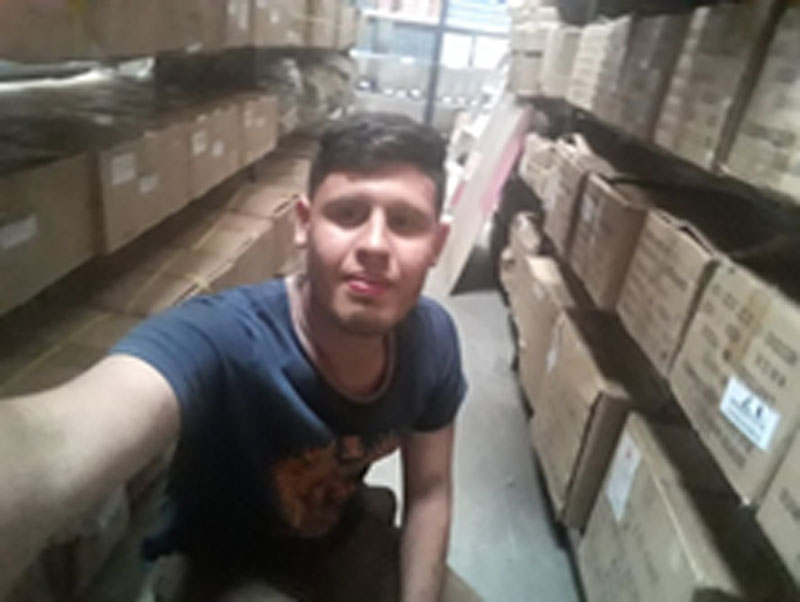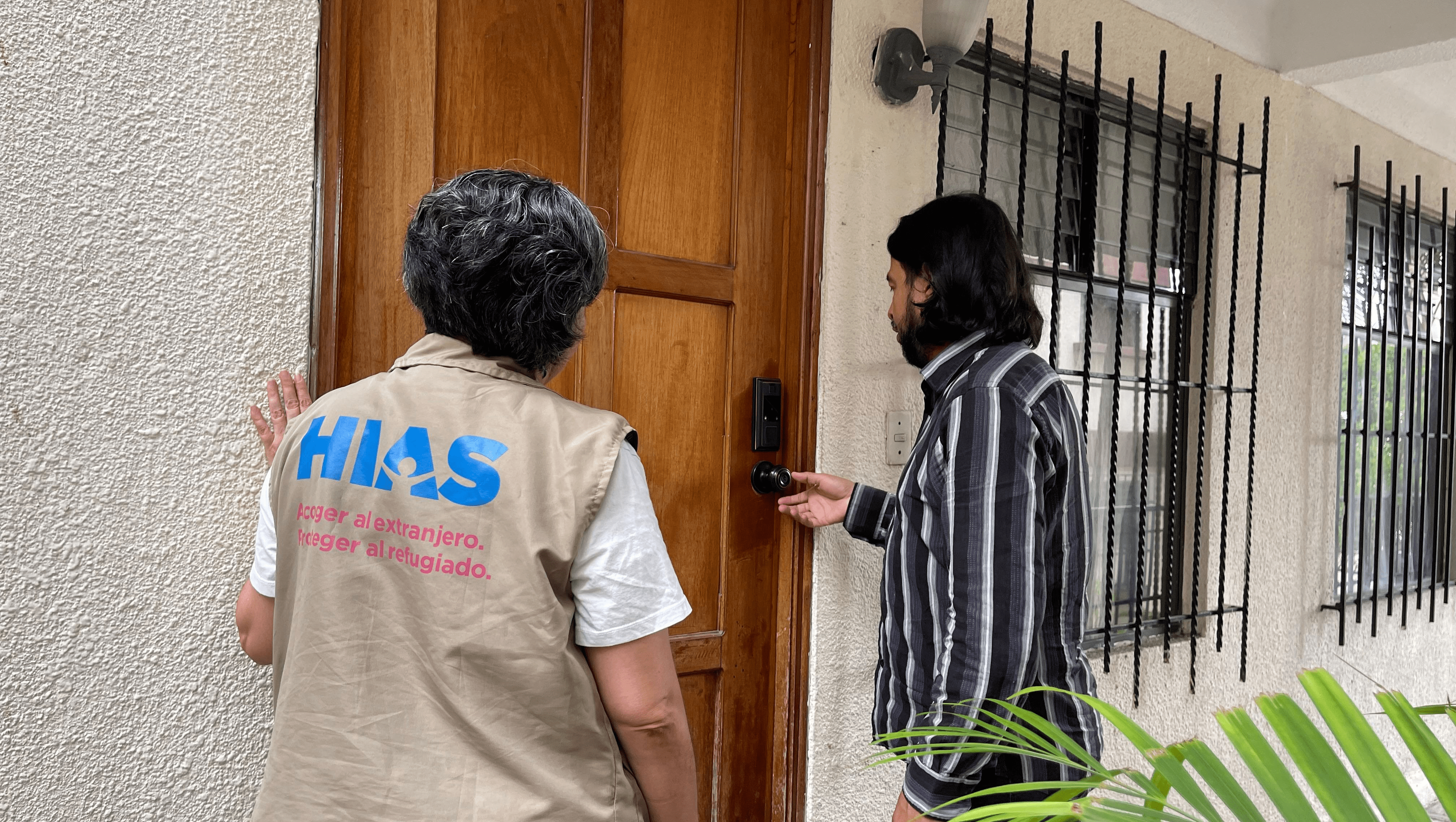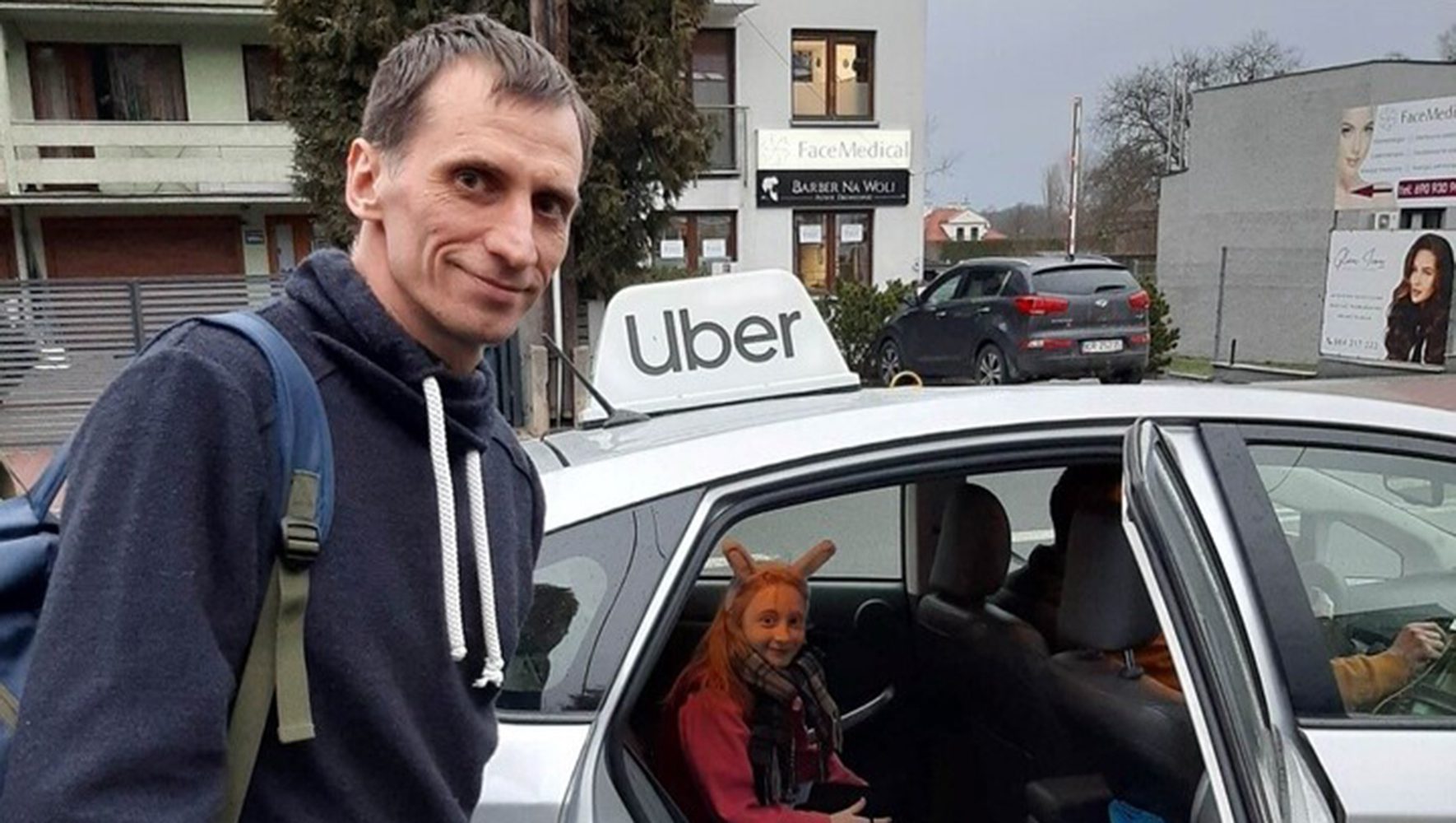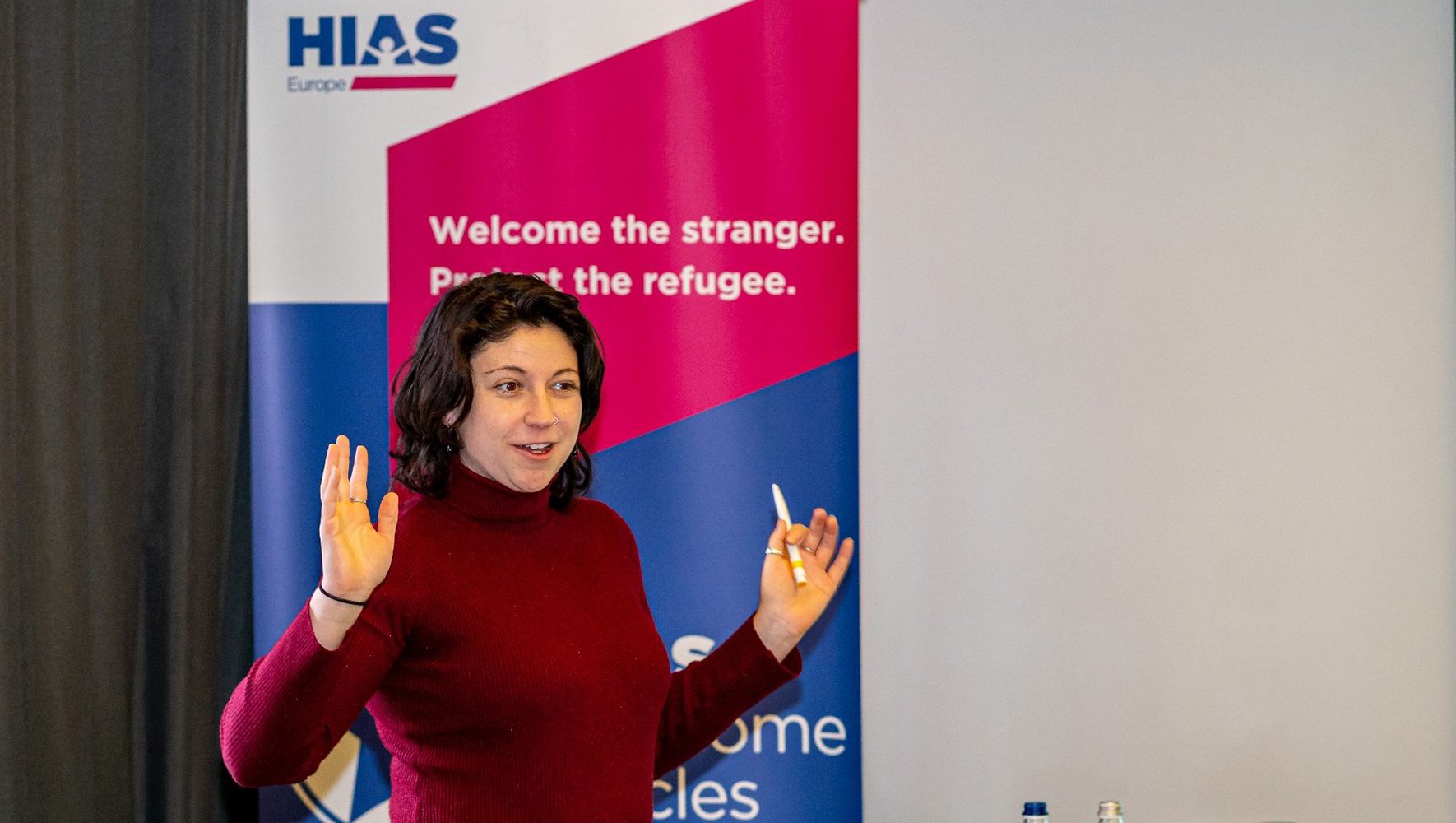Trying to Help Refugees into the Workplace? Now There's an App for That.
By Sharon Samber, HIAS.org
Nov 20, 2020

René Cedeño used the SkillLab app and is currently working for a car parts company as a warehouse assistant.
(courtesy René Cedeño)
It’s often hard for refugees to find jobs, but what if there were an app to help them?
This is not pie-in-the-sky-thinking, but rather a real, artificial intelligence-based technology that assesses refugees’ skills and competencies and links that skill set with job profiles.
That technology was created by SkillLab, which develops technology to help refugees integrate into local labor markets. HIAS is now partnering with SkillLab to promote economic integration for refugees in Ecuador, Peru, and Panama.
SkillLab created a skill-assessment app that lets refugees identify and document their professional skills in their native languages and explore career paths in their host countries. The SkillMap app automatically generates and translates comprehensive skill profiles, mapping refugees’ skill sets to nearly 3,000 occupations.
Tools like apps have become particularly important for HIAS amid the COVID-19 pandemic, which has forced aid groups to learn how to deliver their services to clients remotely. David Gorgani, the business development advisor for SkillLab, said the HIAS staff immediately grasped how the software could support their work. “This is a textbook example of how innovative technology can be leveraged to create real impact for people,” he said. “We look forward to building on our experience and expanding our impact together going forward.”
In Ecuador, SkillMap has already helped several HIAS clients. René Cedeño is currently working for a car parts company as a warehouse assistant after using SkillLab to develop a CV that highlighted his math and administrative skills. Anderson Ospina used SkillMap to identify and enhance technical skills that helped him in hiring interviews, leading to a job working in sales for electrical equipment and materials. Overall, nearly a quarter of participants in all three countries who were referred to a job opportunity were formally hired after one month.
SkillMap has also been a useful tool for refugee and vulnerable women. Yuzmary Rivas, who was hired by a catering company as a commercial advisor, says that SkillMap helped her identify that her strongest skills were. Vivian Quiroz was able to identify her strongest skills and develop a strong resume using the app. She now works as a tutor for a child with autism and has implemented a workshop on guided homework.
The SkillMap app helps employers as well. “There is added value for employers to have more objective assessments while recruiting people,” said Galo Quizanga, HIAS’ director of economic inclusion. The assessment is important and particularly relevant for people who have gone through a process of international mobility, he explained, and the app helps employers understand more about their potential employees.
Refugees skills that were developed in previous experiences can really show recruiters how people can adapt to a different context and different market needs.
Identifying and naming skills has allowed people the opportunity to clearly express their abilities and interests as they attempt to enter the workplace. “I have a new resume, much more complete,” Lola* said. “Before I had never taken into account evaluating my skills, because I really did not know how I could write them.”
Quizanga said the partnership with SkillLab has been amazing for HIAS. “The execution of this pilot exceeded our expectations and allowed us to lift up in a very comprehensive manner the advantages of [artificial intelligence] in our employment facilitation programs,” he said. “But more importantly, the robust set of skills that our clients have can now contribute to the economic development of the communities that host them.”
HIAS and SkillLab are planning to continue working together, strengthening the partnership to reach a wider audience in Latin America.
*Pseudonym used to protect client’s safety.



